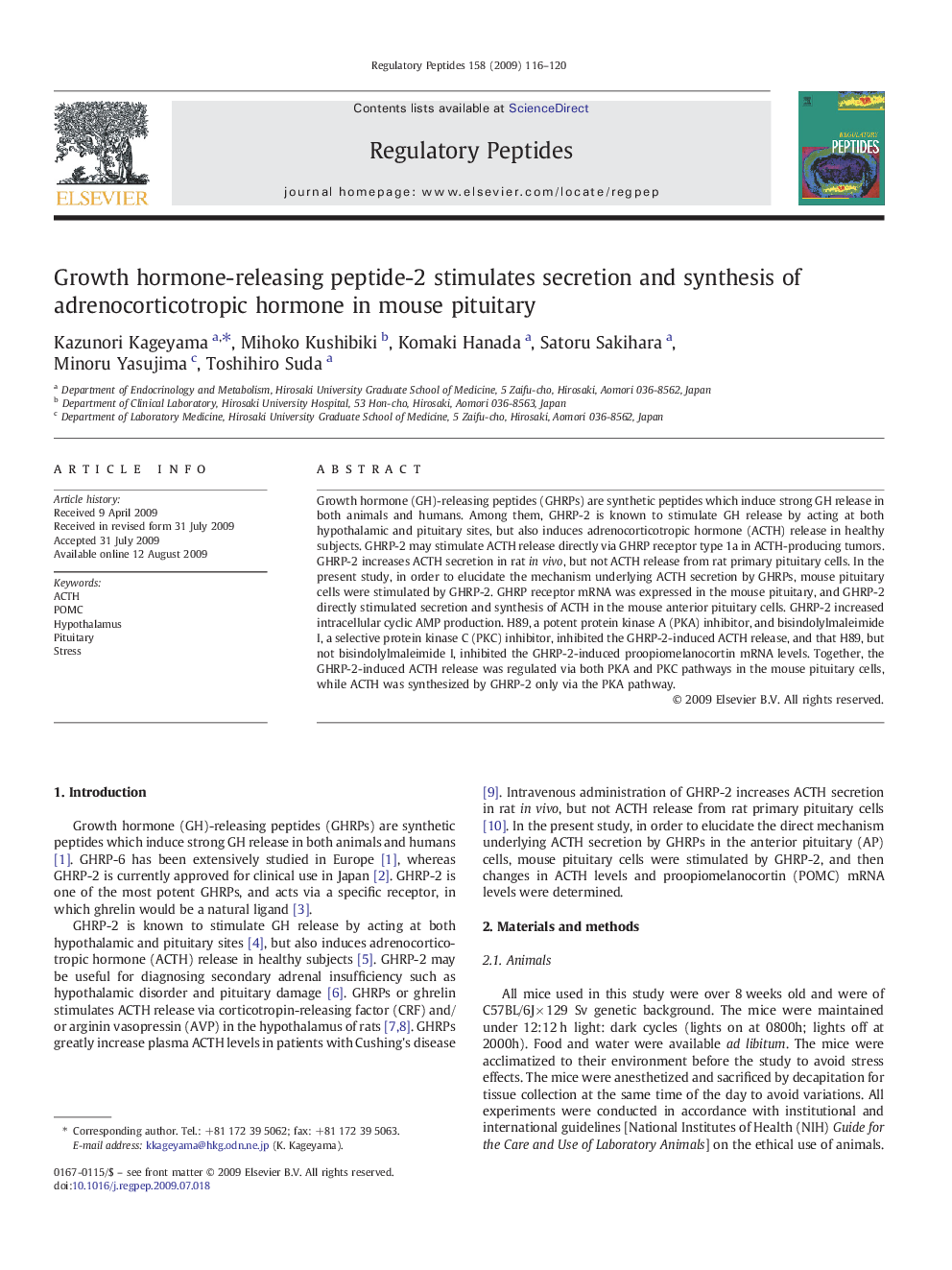| Article ID | Journal | Published Year | Pages | File Type |
|---|---|---|---|---|
| 2022954 | Regulatory Peptides | 2009 | 5 Pages |
Growth hormone (GH)-releasing peptides (GHRPs) are synthetic peptides which induce strong GH release in both animals and humans. Among them, GHRP-2 is known to stimulate GH release by acting at both hypothalamic and pituitary sites, but also induces adrenocorticotropic hormone (ACTH) release in healthy subjects. GHRP-2 may stimulate ACTH release directly via GHRP receptor type 1a in ACTH-producing tumors. GHRP-2 increases ACTH secretion in rat in vivo, but not ACTH release from rat primary pituitary cells. In the present study, in order to elucidate the mechanism underlying ACTH secretion by GHRPs, mouse pituitary cells were stimulated by GHRP-2. GHRP receptor mRNA was expressed in the mouse pituitary, and GHRP-2 directly stimulated secretion and synthesis of ACTH in the mouse anterior pituitary cells. GHRP-2 increased intracellular cyclic AMP production. H89, a potent protein kinase A (PKA) inhibitor, and bisindolylmaleimide I, a selective protein kinase C (PKC) inhibitor, inhibited the GHRP-2-induced ACTH release, and that H89, but not bisindolylmaleimide I, inhibited the GHRP-2-induced proopiomelanocortin mRNA levels. Together, the GHRP-2-induced ACTH release was regulated via both PKA and PKC pathways in the mouse pituitary cells, while ACTH was synthesized by GHRP-2 only via the PKA pathway.
